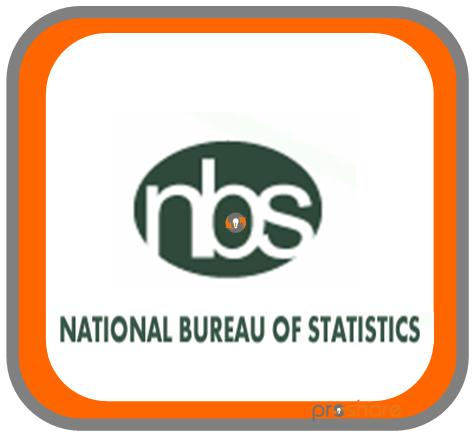Analysis carried out by the National Bureau of Statistics (NBS) has shown that Nigerian importers mainly imported goods from Asian countries – China, India and others – with import values of N2.246 trillion in the first, second and third quarters of 2014.
Nigeria, which is Africa’s largest economy that depends largely on importation to meet the demand of its population due to the underdeveloped state of the country’s manufacturing sector, imports commodities such as boilers, machinery and appliances, mineral products, vehicles, aircraft and associated parts. Others include chemical and allied industrial products, prepared foodstuffs, beverages, spirits and vinegar, tobacco and refined petroleum products.
However, imports started without any clear direction in 2014. First quarter recorded decrease in volume by 6.15 percent, which rebounded in the second quarter, increasing by 23.71 percent, but declined in the third quarter, again by 12.69 percent. As a result, importation in first three quarters of the year totalled N5,343.0 billion, marginally lower by 0.25 percent from levels recorded in 2013.
Europe was Nigeria’s second highest source of import with a total import value of N1.998 trillion in the first, second and third quarters of last year. Imports from American countries ranked third with a total import value of N809.8 billion in the first three quarters of the year under review, while Nigeria’s import trade with countries in the Economic Community of West African States (ECOWAS) amounted to N36.1 billion within the period under review.
Meanwhile, country-by-country analysis of Nigeria’s international trade within the nine months period shows China was consistent in providing the highest value of imports into Nigeria in quarters one, two and three, supplying goods valued at N1.223 trillion. This was followed by the United States of America, which has the second highest volume of imports into Nigeria worth N583.6 billion in the first nine months of 2014.
The NBS analysis further reveals that India ranked third in the first quarter with N93.2 billion worth of imports, while the Netherlands took third position in quarter two with N138.7 billion valued import. The result changed in quarter three as Belgium ranked third with a total imports valued at N148.4 billion.
In the area of export trade, the statistics show that crude oil has continued to dominate the nation’s export trade, contributing a total export trade value of N9.433 trillion in first, second and third quarters of 2014. Other than crude exports, the product contributing the second greatest export value is Natural Liquefied Gas (NLG), which contributed a total of N924.6 billion to the value of the total export trade in the period under review.
According to the NBS, Nigeria mainly exported goods to countries in Europe, with a total value of N2.084 trillion of the total exports. This was followed by Asian countries with a total value of N3.680 trillion in the first, second and third quarters of last year.
Also, Nigeria exported goods valued at N424.4 billion to the continent of Africa in quarter one, N410.7 billion in quarter two and N672.1 billion in quarter three. While exports to the ECOWAS region increased over the period, totalling N171.2 billion of all export trade to Africa in quarter one, N174.6 billion of the continent total in quarter two and N376.0billion of the total for the African continent in quarter three.
India emerged the top country of destination for Nigerian exports in all three quarters of 2014, with the country claiming N544.0 billion of the export total in quarter one, N553.2 billion of the total in quarter two and N685.0 billion in the third quarter total. The Netherlands took the second place in quarter one, with export value of N461.5 billion while Spain took this place in quarters two and three, with N514.1 billion of the total and N393.3 billion of the total in each quarter, respectively.
Copyright Ships & Ports Ltd. Permission to use quotations from this article is granted subject to appropriate credit given to www.shipsandports.com.ng as the source.

